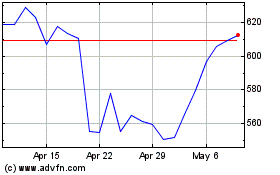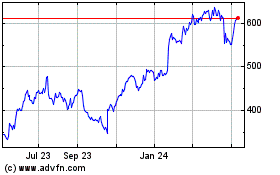Joshua Robinson and Andrew Beaton
In the year when everyone went online to play chess online, and
even went online to watch a TV show about chess, players developed
a nasty new habit. They started cheating at chess online.
As newbies and grandmasters alike flocked to platforms like
Chess.com and Lichess in 2020, administrators noticed a surge in
suspicious activity unlike anything they had ever seen. So they
turned to a group of nerds with expertise so obscure that there are
only a handful of them on the planet: the chess narcs.
They are international masters, legal experts, and computer
scientists -- sometimes all three. Their job is to root out
patterns that reveal the player across your virtual board might be
reaching for outside assistance. They are the reason chess has been
able to make the once unthinkable leap from an over-the-board game
with waning popularity to wildly popular esport in a manner of
months.
"It's a constant fight," said Emil Sutovsky, the director
general of FIDE, the chess's world governing body. Without the
chess police, "it would be impossible to host any serious
events."
The moment countries across the world began locking down because
of the pandemic, online chess exploded. And while the world's top
players had to flee a tournament in Siberia back in March, the most
popular chess websites suddenly had to grapple with regulating
online contests in which anyone with a smartphone can beat Garry
Kasparov.
The chess narcs did more than just ensure online games were
fair. They made sure that chess could make the biggest transition
in its 1,000-year history. They beefed up complex algorithms to
detect suspicious moves. They installed intricate video monitoring
systems in players' homes. They reviewed literally hundreds of
millions of games -- and caught tens of thousands of chess cheats,
including grandmasters.
In November alone, Chess.com closed 18,511 accounts for
violating the site's fair play rules. That's thousands more than
any month in the company's history -- and it happened to come in
the same month that a Netflix show about chess, The Queen's Gambit,
became the most popular streaming show in the U.S.
The data showed something curious. More people were playing
chess. Yet the fair play violations were surging even faster than
the number of overall games. "Which makes us think that there has
been an uptick in the rate of cheating," said Gerard Le-Marechal,
head of cheat detection for chess.com.
"What happened with the computer programs becoming better than
humans and chess not adapting definitely stunted the potential of
chess online for at least a decade," said Hikaru Nakamura, the
world's top-rated blitz chess player.
That this is even an issue in chess today is a testament to the
progress chess engines have made over the past 30 years. Powerful
programs that were once deployed only for high-level exhibitions of
man vs. machine are now accessible to any glorified checkers player
with Wi-Fi. Analysis that peers 18 moves into the future and knocks
off grandmasters is only a click away.
That's also why chess insisted on staging in-person events until
the pandemic. Using technology to cheat in over-the-board
tournaments usually required a small-scale conspiracy. Famous cases
have involved hidden devices, audience members with secret phones,
and even spectators communicating moves based on where they are
standing.
But on the internet, no one knows you're a fraud. "That's where
the algorithm and secret sauce does its heavy lifting," Danny
Rensch, chess.com's chief chess officer, said.
Chess.com has a team of two dozen people constantly tinkering
with complex codes that review more than 5 million games a day on
the platform to root out this behavior from middling pawn pushers
to the game's elite. Its most basic systems search for how often a
player matches the moves from popular computer engines. Its
advanced ones are so intricate that they essentially decode a
player's chess DNA by understanding their abilities and tendencies
so well that it can flag when moves stray too far afield.
Rensch concedes there may still be players cheating and getting
away with it. They only close an account when they have
irrefutable, statistical proof they are right. The systems were
proven when they flagged several of the world's top-100 players for
cheating -- and those players subsequently confessed.
"There's no way seven years ago I would've closed a player in
the top 100," Rensch said.
Those systems have now enabled major tournaments run by the
likes of FIDE and the U.S. Chess Federation. A handful of players
have been barred from FIDE's top online competitions during the
pandemic because they had been flagged by chess.com's mechanisms.
The algorithms are buttressed by requirements that players turn on
a minimum of two cameras -- one showing their face, another from
behind them -- and share their screens while playing to prevent
them from consulting other sources.
"We set the bar quite high," said Sutovsky, of FIDE. "If you
play just well, you would not be under suspicion. If you play
exceptionally well and there is a 1-in-50,000 chance of that, then
we investigate."
There are now online tournaments featuring the likes of world
champion Magnus Carlsen with hundreds of thousands of dollars on
the line enabled by this fast-growing cheat detection
infrastructure. But the modern genesis of this cottage industry
dates back more than a decade to a scandal known simply as
Toiletgate.
The controversy erupted at the 2006 world championships when
Vladimir Kramnik, of Russia, was accused of taking a suspicious
number of bathroom trips. Though no wrongdoing was proved and
Kramnik went on to win the title, the incident caught the attention
of a computer scientist -- and an international chess master -- in
upstate New York. His name is Ken Regan and he became obsessed with
flushing out cheaters.
"I saw the game I love potentially cracking apart," said Regan,
an associate professor of Computer Science and Engineering at the
University at Buffalo. "I'm not a vigilante by any means. I don't
go out looking for trouble."
Trouble comes looking for him. Before the pandemic, Regan would
personally investigate a handful of tournaments a year. Now, he
says, the volume of online play he's asked to sift through is "more
than I can bear." In 2020, Regan alone has processed more than
80,000 performances.
The underlying principle is based on evaluating a player's
chances of finding the best possible move over the course of a
game. Sometimes that move will be obvious. But in key situations,
finding the optimal move can require a level of forethought that is
beyond the capacity of most humans working with a time constraint.
Finding those marginally better moves over and over is what raises
the alarm.
"If there are four moves and one of them is slightly better than
the others and you match the computer 10 times in a row under those
circumstances," Regan said. "That's million to one face-value
odds."
Among grandmasters, those shady patterns are harder to spot. The
expectation is higher that they will find the cleverest moves and
they also tend to be more careful. Instead of using chess engines
to blow defenses apart, they cheat for incremental gain, making
perfect midgame moves that nudge their chances of winning higher.
In other words, when the world's best players cheat, they are not
throwing wild 80-yard touchdown passes -- they are stealing a
couple of yards on second-and-3.
Sutovsky called this "smart cheating." In one infamous September
incident, Armenian grandmaster Tigran Petrosian -- not to be
confused with Armenia's greatest ever player, also named Tigran
Petrosian, who was a world champion in the 1960s -- was caught
cheating in the semifinals and finals of an event. (He denies any
wrongdoing.) Petrosian received a lifetime ban from chess.com and
the PRO Chess League, a prestigious team competition.
Getting nabbed by the chess cops is bad. Getting sentenced by
the chess judges is worse.
"If you get caught cheating," Nakamura said, "your whole career
is over."
(END) Dow Jones Newswires
December 08, 2020 10:13 ET (15:13 GMT)
Copyright (c) 2020 Dow Jones & Company, Inc.
Netflix (NASDAQ:NFLX)
Historical Stock Chart
From Nov 2024 to Dec 2024

Netflix (NASDAQ:NFLX)
Historical Stock Chart
From Dec 2023 to Dec 2024
